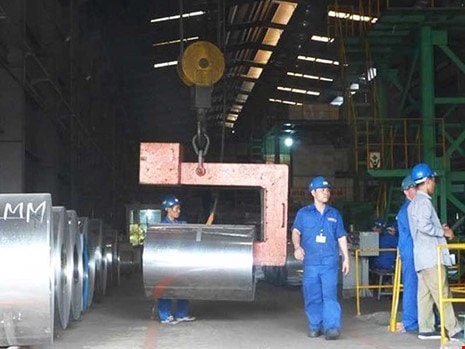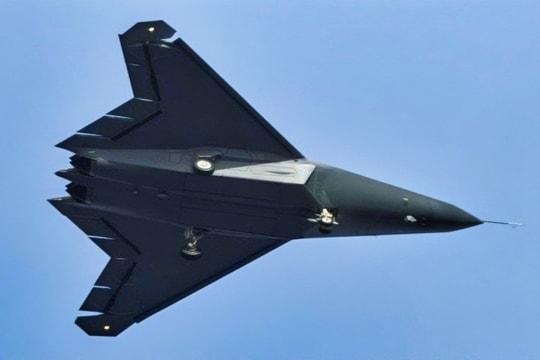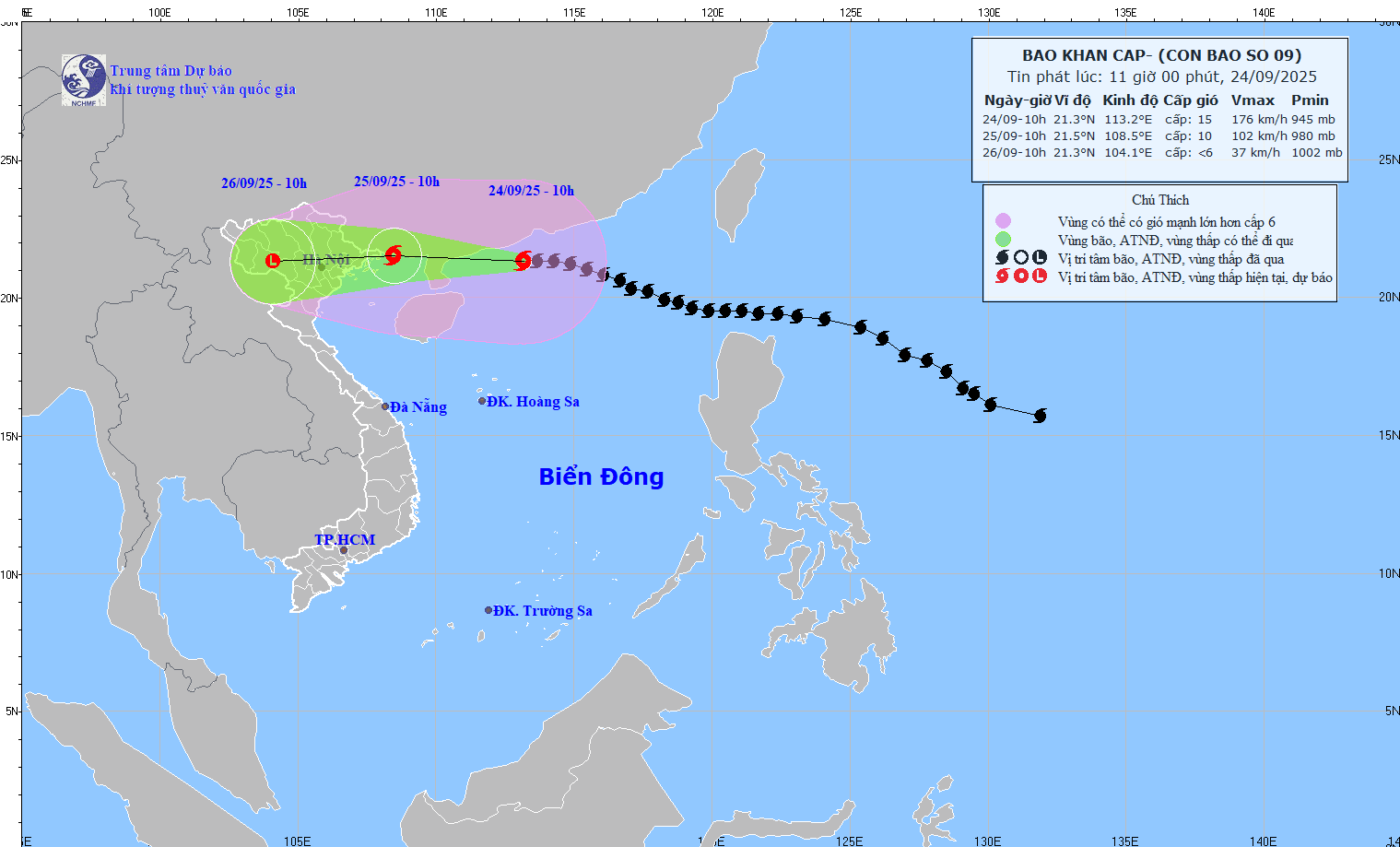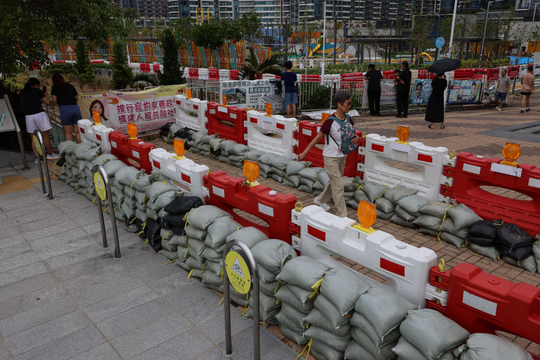Risk of Vietnamese goods 'drowning' with Chinese goods
A series of Vietnamese export products have been sued and are at risk of being sued by other countries. The reason is that importing countries suspect that Chinese goods are brought into Vietnam and then exported to third countries to evade anti-dumping and anti-subsidy taxes.
» [Infographics] Nghe An goods are present in 66 countries around the world
 |
| Illustration photo. |
Some eat snails, others throw away the shells.
The Anti-Dumping Commission under the Australian Department of Industry, Innovation and Science on October 7 decided to initiate an investigation into applying anti-dumping and anti-subsidy measures on alloy-coated steel products from Vietnam.
A few days earlier, the Competition Management Department under the Ministry of Industry and Trade said that two consecutive Vietnamese cold-rolled steel and carbon steel products had been sued by a number of US companies for anti-dumping and anti-subsidy tax evasion.
In the lawsuit filed with the US Department of Commerce (DOC), the plaintiff stated that the US had previously imposed very high anti-dumping and anti-subsidy taxes on Chinese steel, at rates of 200% and 256%, respectively. After the US applied the above taxes, the amount of steel exported from China to the US decreased sharply. On the contrary, the amount of steel exported from Vietnam to the US increased dramatically.
Therefore, American businesses suspect that Chinese companies do not produce these products in China but transfer them to Vietnamese factories for processing, producing a small stage and then exporting them to the US to enjoy tax differences and avoid taxes.
Previously, many other Vietnamese steel products were also sued for anti-dumping in the US market. For example, carbon steel welded pipes, steel nails, oil pipes, stainless steel pipes, and steel hangers.
Not only steel but also some other products such as plastic, wood, granite... also fall into the same situation. A representative of a Vietnamese granite company said that not long ago, Turkey concluded that Vietnamese companies had evaded the anti-dumping tax that this country applied to granite products imported from China. Therefore, the anti-dumping tax currently applied to granite imported from China (174 USD/ton) will also be applied to granite imported from Vietnam.
"With such high tax rates, Vietnamese companies will suffer the same fate and lose the Turkish market," said a representative of the above company.
 |
Vietnamese steel and corrugated iron products have been put on the US and EU's list of potential lawsuits because of suspicion of aiding Chinese goods. Photo: TT |
Danger to Vietnamese goods
Business people believe that being affected by Chinese goods is a danger to legitimate Vietnamese businesses.
According to Dr. Nguyen Tri Hieu, an economic expert, this is a form of trade fraud and sophisticated tax evasion by foreign companies when they are subject to high anti-dumping taxes from large markets such as the US and EU. This is also a phenomenon of foreign investment with many tax evasion acts carried out by foreign companies themselves.
“In addition, there are also cases where some Vietnamese companies are involved. Accordingly, these companies import goods in bulk, even finished products into Vietnam, package them as “Made in Vietnam” and apply for Vietnamese certificates of origin, then export them to some countries to evade taxes,” Mr. Hieu pointed out.
This trade fraud has a big impact on Vietnamese goods when exported to markets, narrowing the market for Vietnamese goods. Meanwhile, Chinese fraudulent goods benefit in a non-transparent way.
"In reality, many businesses that do business honestly are unfairly investigated, lose their reputation, and have their quality questioned by customers," said a representative of an analysis company.
Solution to escape lawsuit
Many opinions say that to protect themselves and fight against the phenomenon of fraud from Chinese goods, domestic companies need to make information about their products transparent, proving that their products are made in Vietnam. At the same time, actively provide evidence to the authorities about Chinese goods impersonating Vietnamese origin to provide to the management agency.
Sharing his experience on this issue, Mr. Tran Quoc Manh, Vice President of the Ho Chi Minh City Handicraft and Wood Processing Association, said that previously, Vietnamese wooden furniture products exported to the US also fell into the same situation as steel products and some other items are facing. Fortunately, the US later abolished anti-dumping tax on Vietnamese wooden furniture. Meanwhile, the US still imposes very high anti-dumping tax on China.
"The reason the wood industry escaped lawsuits from China is because Vietnamese companies have proven that the origin of the wood materials is not from China," said Mr. Manh.
Attorney Ngo Quang Thuy, who has represented Vietnamese companies in anti-dumping lawsuits in the US for many years, noted that in the current steel lawsuit, the plaintiff is accusing the entire Vietnamese steel industry, not just specific exporters. In reality, there are usually no such nationwide tax evasion allegations.
“However, there are still many opportunities for Vietnamese steel companies to prove to the US side so that they can consider. For example, fully answering the accusations, providing information to prove that there is no preferential treatment…” - lawyer Thuy advised.
Worried about China's massive investment Experts warn that many foreign-invested companies in Vietnam, especially Chinese companies, have not invested in production lines but mainly imported products; performed some simple processing and then exported to other countries to avoid anti-dumping taxes. This affects the export activities of domestic companies because they are sued by importing countries due to suspicion of complicity. For example, the Vietnamese wood industry is currently worried about China's massive investment in Vietnam. Currently, the number of Chinese wood companies accounts for 1/3 of the total number of wood companies. Worryingly, some Chinese companies import wood materials, even semi-finished products from China, transfer them to Vietnam for assembly and painting, and then obtain Vietnamese certificates of origin for export. As a result, some countries such as India, Türkiye, etc. have investigated tax evasion and imposed anti-dumping taxes on some Vietnamese wood panel and plywood products. Remote defense Vietnam needs to regularly look up the items that are subject to anti-dumping taxes by major import markets such as the US, EU, Japan, etc., and at the same time find out information about neighboring countries' items that are being sued and subject to high taxes. When discovering that import-export companies suddenly increase the import of items that are similar to items subject to anti-dumping taxes or are under investigation, customs needs to warn relevant agencies to conduct inspections. Dr. Nguyen Tri Hieu,economist |
Ho Chi Minh City Law Newspaper








